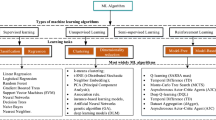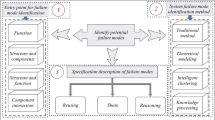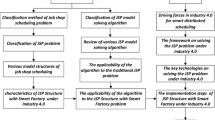Abstract
Any flexible manufacturing system (FMS) may face fault which may disrupt the production and cause delays. Thus, the identification of the source of failure is very important to intervene rapidly. This paper aims to develop an indirect and incremental diagnostic approach to identify the root cause of the observed delay in the context of a single fault occurrence. In this study the observation is done only at the output of the system to measure the output dates of each part and to detect the eventual delay. For this purpose, a mathematical model is developed to model the proposed diagnostic approach of FMS under cyclic scheduling. This cyclic approach provides intermediary reference points to detect any discrepancy with regard the predictive scheduling. These intermediary reference points correspond to the end of each cycle defined by the scheduling. To solve this problem, the constraint programming technique is used. Finally, the performance of the proposed approach is evaluated with respect to the literature. The major merit of this study is to prove the capacity to diagnose efficiently the progressive faults of a plant without the necessity to add sensors dedicated to its monitoring.





Similar content being viewed by others
References
Basile, F., Chiacchio, P., & Tommasi, G. D. (2012). On k diagnosability of petri nets via integer linear programming. Automatica, 48(9), 2047–2058.
Belkahla, O., Yim, P., Korbaa, O., & Ghedira, K. (2007). A distributed transient interproduction scheduling for flexible manufacturing systems. Journal Européen des Systèmes Automatisés, 41(1), 101–123.
Benamar, A., Camus, H., & Korbaa, O. (2011). Mathematical model for cyclic scheduling with work-in-process minimization. Journal of Flexible Services and Manufacturing, 23(2), 111–136.
Bohm, S., Haar, S., Haddad, S., Hofman, P., & Schwoon, S. (2015). Active diagnosis with observable quiescence. In 54th IEEE Conference on Decision and Control (CDC’15).
Cassandras, C., & Lafortune, S. (2008). Introduction to discrete event systems (2nd ed.). Berlin: Springer.
Chiacchio, P., & Tommasi, G. (2009). An efficient approach for online diagnosis of discrete event systems. IEEE Transactions On Automatic Control, 54(4), 748–759.
Ding, S. (2008). Model-based fault diagnosis techniques: Design schemes, algorithms, and tools. Berlin: Springer.
Fakhfakh, O., Korbaa, O., & Toguyeni, A. (2012). Double chaining approach for indirect monitoring of fms under cyclic scheduling. Information Control Problems in Manufacturing, 14(1), 151–157.
Giua, A. (2015). Diagnosis and diagnosability of discrete event systems using petri nets. 9th IFAC Symposium on Fault Detection, Supervision and Safety for Technical Processes SAFEPROCESS 2015 - Paris 48 (21), 179.
Grastien, A., & Anbulagan, A. (2010). Diagnostic de systèmes à evénéments discrets à base de cohérence par sat. Revue d’Intelligence Artificielle, 24(6), 757–786.
He, S., He, Z., & Wang, G. A. (2013). Online monitoring and fault identification of mean shifts in bivariate processes using decision tree learning techniques. Journal of Intelligent Manufacturing, 24(1), 25–34.
Herroelen, W., & Leus, R. (2004). Robust and reactive project scheduling: A review and classification of procedures. International Journal of Production Research, 42(8), 1599–1620.
Hsu, T., Korbaa, O., Dupas, R., & Goncalves, G. (2008). Cyclic scheduling for fms: Modelling and evolutionary solving approach. European Journal of Operational Research, 191(2), 464–484.
Isermann, R. (2011). Fault-diagnosis applications. Model-based condition monitoring: Actuators, drives, machinery, plants, sensors, and fault-tolerant systems (1st ed.). Berlin: Springer.
Korbaa, O., Camus, O., & Gentina, J. C. (2002). A new cyclic scheduling algorithm for flexible manufacturing systems. International Journal of Flexible Manufacturing Systems, 14(2), 173–187.
Ladiges, J., Haubeck, C., Fay, A., & Lamersdorf, W. (2015). Learning behaviour models of discrete event production systems from observing input/output signals. 15th IFAC Symposium on Information Control Problems in Manufacturing 48 (3), 1565–1572.
Lei, W., & Yuen, C. (2012). Formulation of a novel production line monitoring technique. International Journal of Production Research, 50(22), 6612–6623.
Ly, F., Toguyeni, A., & Craye, E. (2000). Indirect predictive monitoring in fms. Robotics and computer integrated manufacturing, 16(5), 321–338.
Mortada, M., Yacout, S., & Lakis, A. (2014). Fault diagnosis in power transformers using multi-class logical analysis of data. Journal of Intelligent Manufacturing, 25(6), 1429–1439.
Nabli, L. (2000). Surveillance prédictive conditionnelle prévisionnelle indirecte d’une unité de filature textile : Approche par la qualité. Ph.D. thesis, Ecole Centrale de Lille.
Pratap, S., Daultani, Y., Tiwari, M. K., & Mahanty, B. (2015). Rule based optimization for a bulk handling port operations.Journal of Intelligent Manufacturing. doi:10.1007/s10845-015-1108-7.
Roth, M., Schneider, S., Lesage, J., & Litz, L. (2012). Fault detection and isolation in manufacturing systems with an identified discrete event model. International Journal of Systems Science, 43(10), 1826–1841.
Ru, Y., & Hadjicostis, C. (2009). Fault diagnosis in discrete event systems modeled by partially observed petri nets. Discrete Event Dynamic Systems, 19(4), 551–575.
Sampath, M., Sengupta, R., Lafortune, S., & Sinnamoh, K. (1995). Diagnosability of discrete-event systems. IEEE Transactions on Automatic Control, 40(9), 1555–1575.
Sampath, M., Sengupta, R., Sinnamohideen, K., Lafortune, S., & Teneketzis, D. (1996). Failure diagnosis using discrete event systems. IEEE Transaction on Control System Technology, 4(2), 105–124.
Sayed-Mouchaweh, M., Philippot, A., & Carre-Menetrier, V. (2008). Decentralized diagnosis based on boolean discrete event models: Application on manufacturing systems. International Journal of Production Research, 46(19), 5469–5490.
Son, H., & Lee, S. (2007). Failure diagnosis and recovery based on des framework. Journal of Intelligent Manufacturing, 18(2), 249–260.
Staroswiecki, M., & Comtet-Varga, G. (2001). Analytic redundancy relations for fault detection and isolation in algebraic dynamic systems. Automatica, 37(5), 687–699.
Toguyeni, A., Craye, E., & Gentina, J. (1997). Time and reasoning for on-line diagnosis of failures in flexible manufacturing systems. In Proceedings of the 15th IMACS world congress on scientific computation, modeling, and applied mathematics 6, 709–714.
Toguyeni, A., & Korbaa, O. (2005). Indirect monitoring of the failures of a Flexible Manufacturing Systems under cyclic scheduling. Robotics and Computer-Integrated Manufacturing, 21(1), 1–10.
User’s Manual (2010). IBM ILOG Solver V6.8.
Valentin, C. (1994). Modeling and analysis methods for a class of hybrid dynamic systems. Symposium Automatisation des Processus Mixtes: Les Systèmes Dynamiques Hybrides pp. 221–226.
Verdiere, N., Jauberthie, C., & Trave-Massuyes, L. (2015). Functional diagnosability and detectability of nonlinear models based on analytical redundancy relations. Journal of Process Control, 35, 1–10.
Zaytoon, J., & Lafortune, S. (2013). Overview of fault diagnosis methods for discrete event systems. Annual Reviews in Control, 37(2), 308–320.
Zhang, K., Yuan, H., & Nie, P. (2015). A method for tool condition monitoring based on sensor fusion. Journal of Intelligent Manufacturing, 26(5), 1011–1026.
Zwingelstein, G. (1995). Diagnostic des défaillances - théorie et pratique pour les systèmes industriels. Traité des Nouvelles Technologies, série Diagnostic et Maintenance. Hermès Science, France.
Author information
Authors and Affiliations
Corresponding author
Rights and permissions
About this article
Cite this article
Fakhfakh, O., Toguyeni, A. & Korbaa, O. On-line fault diagnosis of FMS based on flows analysis. J Intell Manuf 29, 1891–1904 (2018). https://doi.org/10.1007/s10845-016-1219-9
Received:
Accepted:
Published:
Issue Date:
DOI: https://doi.org/10.1007/s10845-016-1219-9




